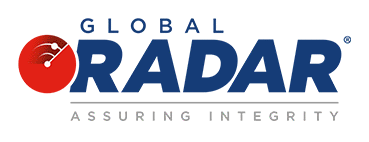Hollywood Stars Implicated in Money Laundering Cases
Despite the epic rise of the anti-money laundering (AML) movement seen across the globe since the 2008 global financial crisis, coupled with the robust regulatory standards which financial institutions must comply with today, global money laundering statistics are still astonishing. Global money laundering transactions are estimated at roughly USD $1-2 trillion annually, yet according to the United Nations Office on Drugs and Crime, “authorities currently seize less than 1% of global illicit financial flows” (UNODC, 2011). With increased amounts of illicit funds spreading to areas of the world already synonymous with crime, it is fair to wonder how terrorism, the drug trade, and political corruption will be impacted with increased resources. When most think of money laundering, they envision scenes from mob movies where drug kingpins attempt to “clean” their dirty funds by any means necessary, with explosions, shootouts, and high-speed police chases often ensuing. Seldom do we think of the possibility of celebrities – individuals who often play the roles of money launderers or corrupt politicians in their Hollywood films, and who are usually worth millions of dollars already – as potential cogs in real-world money laundering cases. However, of late multiple high-profile celebrities have been implicated in money laundering scandals that have made the front-page on international tabloids.
Many can recall some of the vivid scenes from the highly successful feature film The Wolf of Wall Street from 2013. The film, based on actual events, starred Leonardo DiCaprio as Jordan Belfort, a penny stockbroker who made millions of dollars in the early-1990’s by defrauding wealthy investors out of their money. An FBI investigation into Belfort’s business improprieties ultimately saw him serve 22-months in prison on fraud charges (which likely would have been significantly longer had he not agreed to testify against his business partners), while also revealing a long line of corruption on Wall Street in the process. The ironic aspect of this film that many had no knowledge of until recently was the fact that it was funded in-part by money siphoned from the Malaysian Development (1MDB) Fund, a scandal that is still sending shockwaves across the financial services sector today. Red Granite Pictures, a company co-founded by Riza Aziz, the stepson of Malaysian Prime Minister Najib Razak, produced The Wolf of Wall Street and is said to have used over $100 million in embezzled funds from the 1MDB fund to cover production and marketing costs for the film. The U.S. Department of Justice believes that Aziz aided Razak in embezzling $4.5 billion in total from the political development scheme and used a portion of the money to pay for lavish parties, make jewelry and real estate purchases, and splurge on other luxury items.
Where DiCaprio emerges in this case, aside from his role in the film, is in his receipt of valuable gifts from executives from Red Granite Pictures that are believed to have been purchased with the illicit funds. Among the gifts DiCaprio is said to have received are several works of art worth multiple millions of dollars each (including original pieces from Picasso and Basquiat, respectively), as well as Marlon Brando’s “Oscar” for best actor. DiCaprio received the award, originally bestowed upon Brando for his performance in 1954’s On the Waterfront, from Red Granite’s principal financier as a 38th birthday present. The LA Times reports that DiCaprio has been fully cooperative with the FBI, returning the artwork and the Oscar to federal authorities. They have also reported that “there are no plans at this time for DiCaprio to forfeit the money he received for his work on ‘The Wolf of Wall Street’’’ and that DiCaprio “intends to offer the return of any ‘gifts or donations’ under speculation with ‘the aid and instruction of the government’” (Czachor, 2017).
Music moguls Jay-Z and Beyoncé Knowles have been plastered on newsstands of late following the birth of their twin children this past week, but were making news earlier in 2017 for more unfortunate reasons. With Nigerian energy tycoon Kola Aluko under investigation in both Nigeria and Europe for alleged money-laundering crimes including an “alleged scheme to defraud the government of oil sale profits”, much attention has been drawn to his own luxurious real estate purchases and assets, including an “ultra-yacht” found under his name coined the Galactica Star, which is reportedly worth over $50 million. The 65-meter (213 ft) long yacht is one of the larger of Aluko’s possessions that are part of a $1.76 billion asset freeze initiated by the Nigerian state of Lagos. The mega-star music couple ties into Aluko’s probe because they reportedly rented the luxury yacht from Aluko for an Italian vacation in 2015 at the hefty price of $900,000 per week prior to the charges emerging against him. Aluko has yet to be apprehended, and many believe that he is currently in hiding on the yacht as it travels throughout the world.
While the events that have unfolded are rather unfortunate for the celebrities involved, these cases go to show that anyone can be susceptible to, and impacted by, the far-reaching hand of international financial crime.
Denmark Tightening Its AML Screws
As a response to the Panama Papers fiasco of 2016, the Scandinavian country of Denmark is set to introduce new anti-money laundering laws which they hope will have a significant influence on the quality of work performed by compliance officers and other financial industry employees within their borders. In the new legislation, Denmark’s government will reportedly target “tougher prison sentences for individual bank managers and consultants involved in breaches” (Wienberg, 2017). While Denmark currently has legislation in place that allows someone convicted of money laundering crimes to spend up to six years in prison, the government wants to raise the stakes even higher. Several government officials are lobbying for the maximum sentence to be raised from six to eight years, and are also calling for increased monetary fine rates.
With two of Denmark’s most prominent banks (Danske Bank and Nordea Bank) having recently been called out by financial regulators over their compliance-related shortcomings, the new legislation may also grant financial regulators in Denmark greater abilities to cancel banking licenses for financial institutions with multiple instances of non-compliance. The overall goal of the new rules is to place an increased amount of pressure on banks and their compliance staff members to perform their jobs properly, or risk facing severe repercussions.
FinTech Causing Major Losses?
The Irish Times recently reported on the adoption and current state of Financial Technology in Ireland’s financial services sector. FinTech has already been largely adopted in the United States and other developed countries around the world and has greatly increased operational efficiency in many financial institutions since bursting onto the compliance scene several years ago. Ireland is the latest to move to the incorporation of technology in the compliance workplace, as a report from PwC “shows that over three-quarters of Irish financial institutions (FI’s) expect to increase internal innovation efforts over the next three to five years” (Hamilton, 2017). In addition, 58% of Irish financial institutions say they plan on investing in cybersecurity by 2018.
The survey also found that “over 70 per cent of Irish businesses expect revenue losses of up to 40 per cent over the coming years as a result of innovation in the financial technology (FinTech) sector” (Hamilton, 2017). With anti-money laundering regulations being regarded as the biggest hurdle to increased innovation by the vast majority of FI’s surveyed, many Irish banks have been hesitant to adopt new methods and technologies due to fear of failure in meeting the strict regulatory demands by which they are governed. However, the growing reliance on, and ease that accompanies, artificial intelligence is evident across the globe, and has the potential to significantly shift the way money is handled and moved in the years to come. As a result, a new wave of both financial and intellectual investment into financial technology is on the horizon in Ireland.
11 Charged As AML Investigation Closes
Following the end of a three-year money laundering investigation by the United States District Attorney’s Office in the Northern District of Georgia, 11 individuals have been charged with laundering funds in excess of $40 million over a four year span. The investigation, which focused on money remittance businesses, “began investigating individuals in the metro-Atlanta area in 2014 on suspicion of sending drug money to Mexico, according to a U.S. Department of Justice press release (Mandel, 2017). The funds were being sent out of the U.S. through money remittance services which allow customers to wire funds to individuals across international borders (in this case to Mexico) while cutting out banks from the equation – increasing the chances of a successful illicit funds transfer immensely.
The investigation discovered that the operators of nine different U.S. businesses were involved, agreeing to launder funds to Mexico by “breaking the transactions into smaller amounts and by listing fake sender names, addresses, and telephone numbers” (Mandel, 2017). Those involved in this money-laundering fiasco attempted to circumvent the Bank Secrecy Act, as several of the men apprehended were compliance officers themselves. Unfortunately for them, their knowledge of AML regulation was not enough to thwart the long arm of the law. Nine of the eleven individuals charged in the scheme were based in Atlanta, Georgia or the city’s surrounding counties and are currently in custody. The other two individuals charged are Mexican nationals who have yet to be apprehended.
Citations
Czachor, Emily Mae. “Leonardo DiCaprio Hands over Brando’s Oscar, a Picasso and More to the U.S. Government.” Los Angeles Times. Los Angeles Times, 23 June 2017. Web.
Hamilton, Peter. “Most Businesses Expect Losses Due to New Financial Technology.” The Irish Times. The Irish Times, 20 June 2017. Web.
Mandel, Eric. “Feds Charge 11 for Laundering $40M from Metro Atlanta to Mexico.” Atlanta Business Chronicle. 21 June 2017. Web.
United Nations Office on Drugs and Crime. “Estimating Illicit Financial Flows Resulting from Drug Trafficking and Other Transnational Organized Crimes.” (2011). Print.
Weiss, Lois. “Nigerian Mogul with Manhattan Penthouse Probed for Money Laundering.” New York Post. New York Post, 24 Feb. 2017. Web.
Wienberg, Christian. “Denmark Cracks Down on Money Laundering as Bankers Face Prison.” Bloomberg.com. Bloomberg, 21 June 2017. Web.

